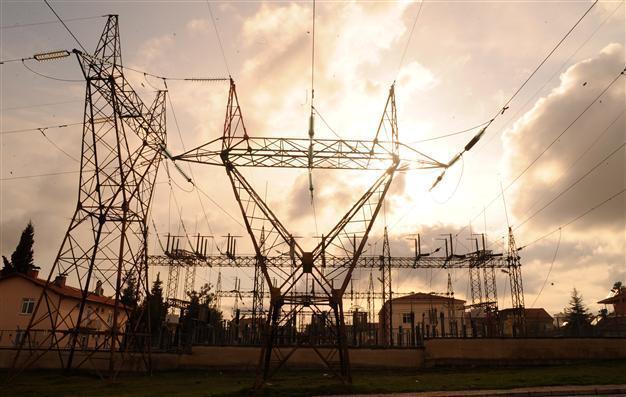Blackout cost Turkey over $700 million
ANKARA

AA Photo
The massive power outage on March 31, which hampered production and transportation across Turkey, cost the country $700 million, according to one professional, while others estimated that losses were considerably higher.
Nurettin Özdebir, the head of the Ankara Chamber of Industry (ASO), told daily Hürriyet that Turkey’s daily national income production was $2.2 billion, with a calculated annual figure of $800 billion.
“A one-hour power cut therefore costs Turkey up to $100 million,” Özdebir said, estimating the total cost of yesterday’s blackout to be $700 million as it continued for almost the whole working day.
However, Gürkan Kumbaroğlu, head of the International Association of Energy Economy (IAEE) said Turkey’s power demand stands at 33 million kWh per hour, which meant the overall loss was higher.
“The value of the power need not met during the cut is 6.3 million Turkish Liras [$2.3 million],” he said.
Along with intra-city transportation in many large cities, fast train lines were also hampered during the cut.
Hulusi Belgü, the head of the Shopping Mall Investors Association (AYD), said that medium-sized shopping malls spent diesel oil worth around 50,000 liras ($20,000) for generators during the blackout.
The textile industry, a leading sector for Turkish exports, suffered a production loss worth $200 million, sector representatives said.
Production at car factories, another top industry, stopped for the entire day, resulting in 2,000 less cars being assembled.
State offices, police security cameras and teller machines were also hit by the massive power outage, which hit 80 of 81 Turkish provinces for up to nine hours on March 31. Its cause is still a matter of debate.
Described by the Energy Ministry as the worst national blackout since the 1999 Marmara earthquake, the outage wreaked havoc in daily life throughout the country with mass transit and traffic lights ceasing to work, hospitals sounding the alarm, factories halting production, mobile phone connections suffering from disruptions and people becoming stranded in elevators and traffic jams.
Officials started to restore power in much of the country by the afternoon. Energy Minister Taner Yıldız announced that all provinces had finally been provided with electricity by 8 p.m., meaning that many Turks endured the blackout for more than nine hours.
Yıldız also admitted that officials had yet to pinpoint the main source of the problem. He cut his official trip to Slovakia short late March 31 to meet his staff to discuss the issue.
Turkey’s national energy grid is like an elaborate network of modern highways with many side roads that can be used as backup, even in the worst-case scenarios.
Prime Minister Ahmet Davutoğlu confirmed that a possible cyber-attack was also being considered as the reason for the cut. However, many doubt that such a catastrophic power outage could have been caused by mere mismanagement.
